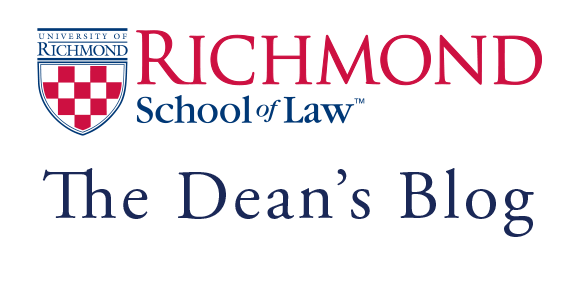A recent survey by the Pew Research Center found that political polarization has increased dramatically over the last 20 years. It is not just that people strongly disagree about important social and policy issues – that has always been true. But there are two new and disturbing trends that we’re seeing. First, there are fewer political moderates: people who hold what we would think of as liberal views on some issues and conservative views on others. That means not only is there just less common ground, but more than that, people who inhabit these ideological silos tend to cut themselves off from those who do not share their full constellation of views. And second, our politics have become increasingly personal with an almost tribal cast. We see those who disagree with us as unintelligent, ignorant, selfish, or even evil.
As our society struggles with this problem of deep polarization, lawyers and law schools have an important role to play. Lawyers are, after all, in the dispute resolution business. Resolving conflict is central to what we do. And today, perhaps more than ever before, the skills that we as lawyers have, and we as law professors teach, is of critical importance.
Lawyers are not social workers, but they are, as Lon Fuller put it, architects of social structure. And in that role as architects, they can be – we can be – enormously helpful in reconnecting a fractured world. That is to say, in building bridges.
So that is my theme for the year: building bridges. Over the last few years, there has been much focus within the legal academy on bridging theory and practice. And that work should continue. But at this moment in time, we lawyers, and educators of lawyers-to-be, need to be building other bridges as well, and teaching our budding lawyers to build bridges in a different way too. Society needs us to model listening skills, so that we can openly and honestly build dialogue with respect for one another’s views.
So over the course of the year, I hope to celebrate and encourage law schools as leaders of civil discourse, reasoned debate, and productive dispute resolution. As we go about that work, let us remember the admonition of Justice Thurgood Marshall which appears on the Virginia Civil Rights Memorial: “The legal system can force open doors and sometimes even knock down walls, but it cannot build bridges. That job belongs to you and me.”
